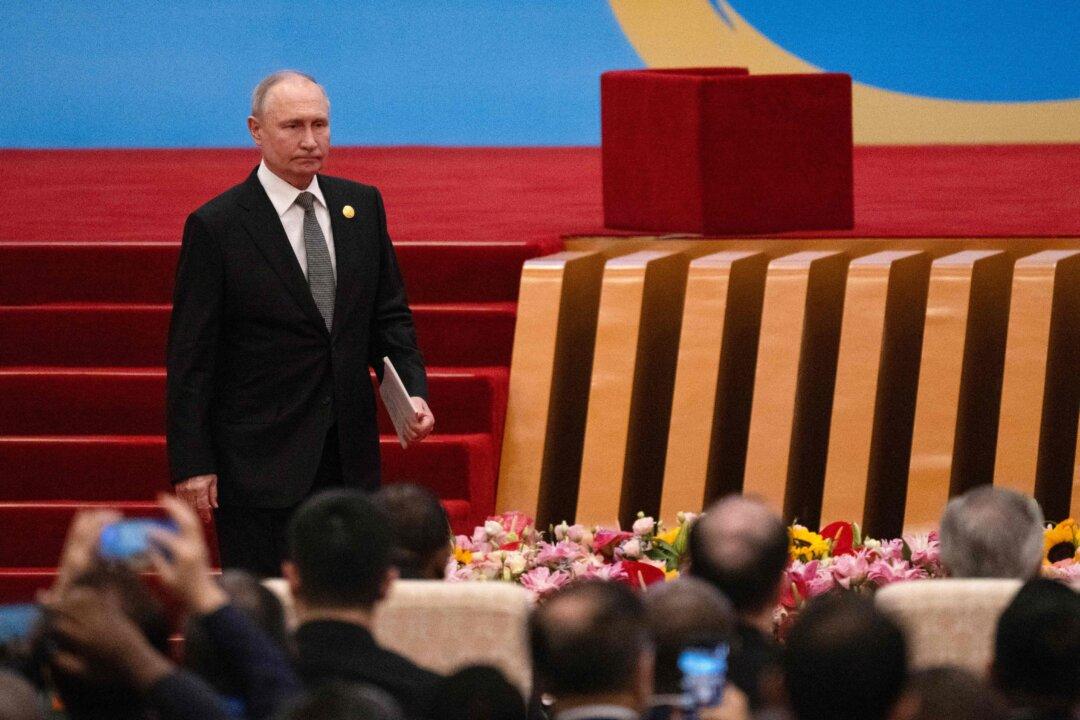Russian President Vladimir Putin called Chinese leader Xi Jinping his “dear friend” on Wednesday, in a forum promoting China’s Belt and Road Initiative (BRI) that critics say puts participating nations in unsustainable debt obligations.
Mr. Putin arrived in Beijing on Tuesday, in a rare international trip since he faces an arrest risk over war crimes in Ukraine. The Russian leader was one of several high-profile guests attending the Belt and Road Forum in Beijing on Oct. 18, which included the Taliban’s acting commerce minister Haji Nooruddin Azizi.





